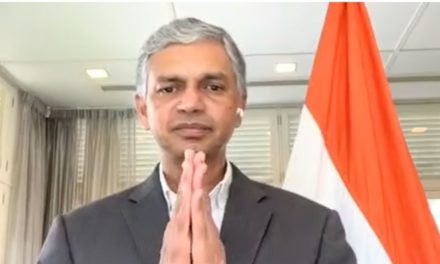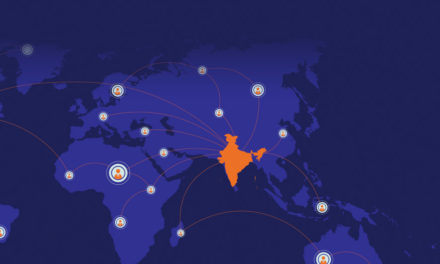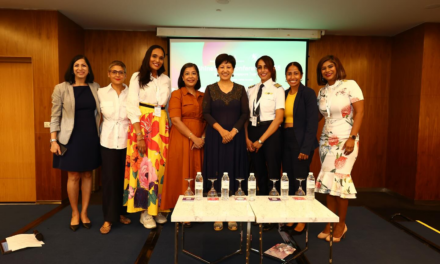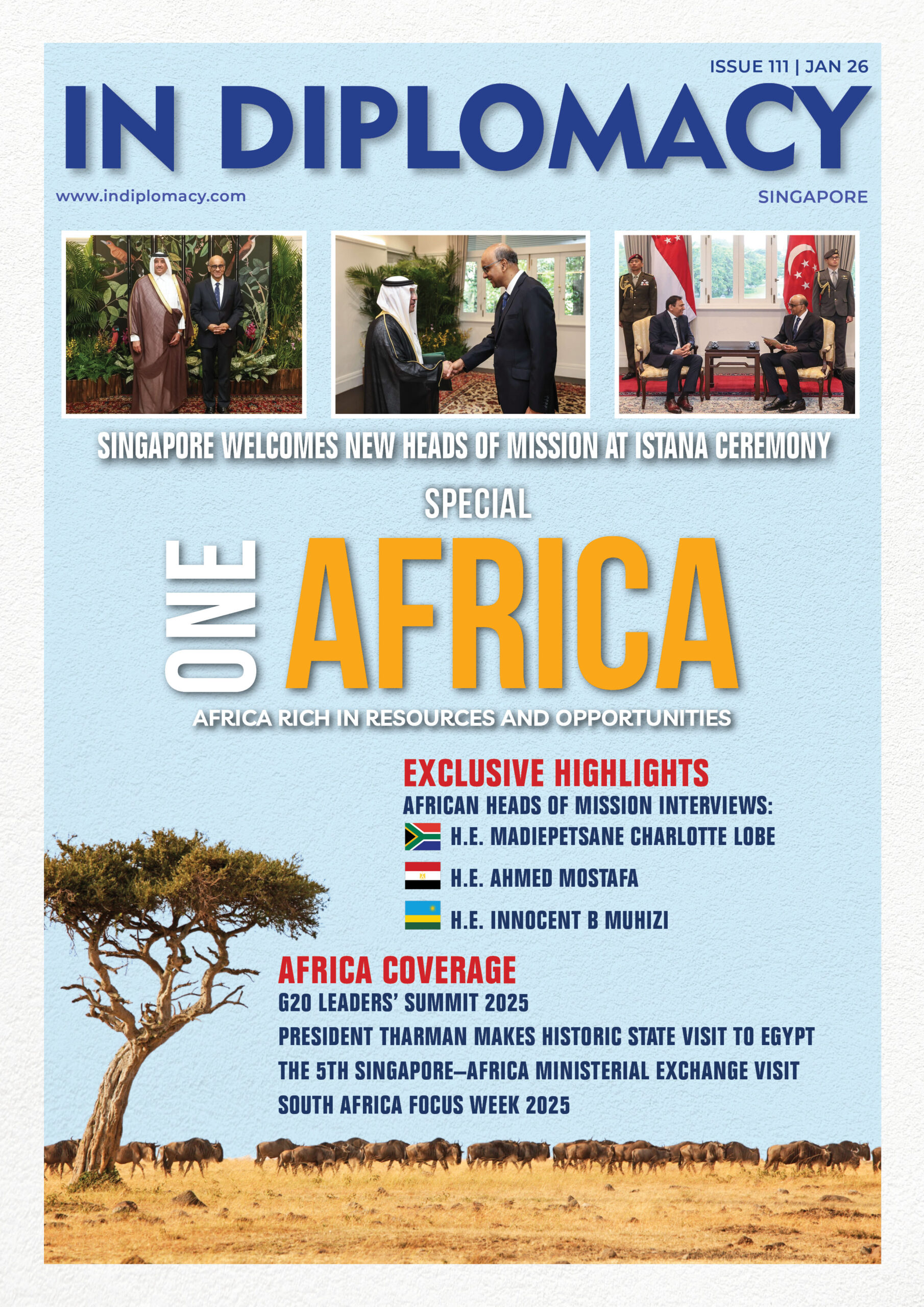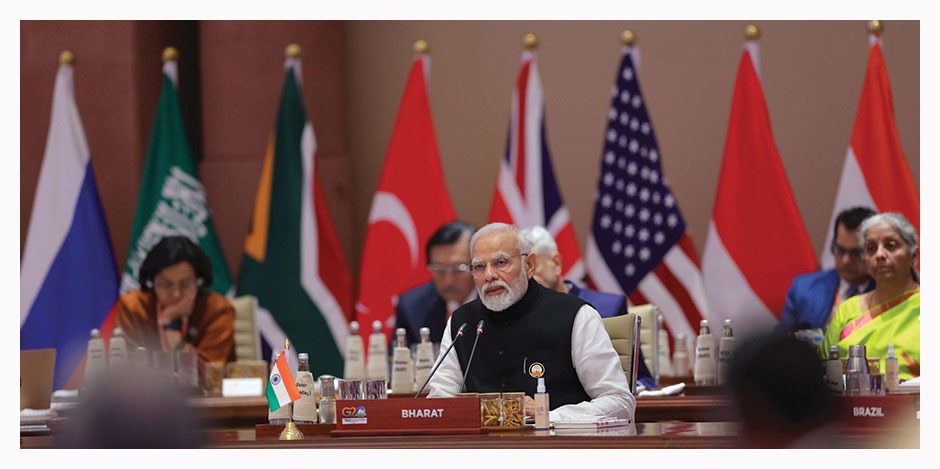
India held the G20 Presidency in 2023 and the world leaders congregated for the Summit in September. Held between 9 and 10 September the Summit was preceded with more than 200 meetings that were held in 60 Indian cities, 28 States and 8 Union Territories. 100,000 delegates from 135 nationalities participated throughout the year. The historic New Delhi G20 Leaders’ Declaration was adopted unanimously on the first day of the Summit. “The Grand Success of G20 Bharat Presidency: Visionary Leadership, Inclusive Approach” was published by the Research and Information System for Developing Countries (RIS) we bring you the excerpts
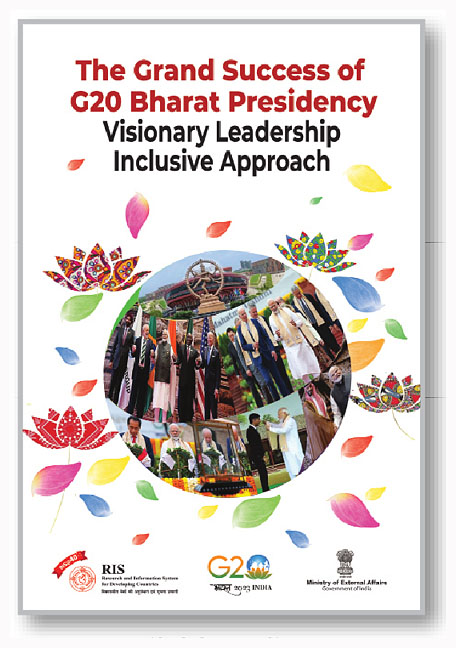
www. ris.org.in
IN this special publication several eminent writers have contributed features on various aspects of G20. In his Foreword the former Foreign Secretary and G20 Chief Coordinator, Mr Harsh Shringla, who witnessed the organisational process of the G20 said, “Prime Minister Modi’s vision for India’s G20 was to democratize and decentralize the G20 process. Thus, a nationwide approach was adopted and meetings were organized across the length and breadth of the country. His vision provided a global platform for the potential and cultural diversity in India’s States, Union Territories, and cities.”
India held over 200 meetings in 60 cities across India. Unmatched in scale no previous presidency had ever ventured into such territory. Prime Minister Modi’s faith in India’s potential was more than justified as meetings were successfully organized in every single State and Union Territory, showcasing the rich cultural heritage and diversity, unique tourism potential, and development prowess of each region in India, wrote Mr Harsh Shringla.
Global Visibility
Prime Minister Modi deliberately called for the G20 meetings to be organized in cities that had not previously experienced such global attention, including those in the North-Eastern region. The presidency’s impact also ushered in a transformation across states, elevating them to the stature of capable hosts for world-class conferences, armed with the essential physical infrastructure. This urban metamorphosis, encompassing enhancements, additions, and aesthetic improvements, bestowed many states with newfound confidence and global visibility.
The above was Prime Minister Modi’s vision to take diplomacy to the people and use a pan-India approach to make every citizen a stakeholder in India’s Presidency. This was made possible through the highly effective concept of ‘Jan Bhagidari’ or Citizen Engagement. Over 1.5 crore citizens were actively part of the G20 process because of the Jan Bhagidari events within India, and 45 lakh people across the globe.
This unique approach to the G20 eventually culminated in the unprecedented New Delhi Leaders’ Declaration. India achieved what many believed to be impossible, considering the strong geopolitical divisions within the G20. In today’s ideologically charged world, India united the G20, ensuring that political differences did not hinder development.
What makes this declaration especially remarkable is how swiftly it was adopted. Typically, in complex multilateral processes like G20 negotiations, discussions often go down to the wire. However, Prime Minister Modi announced a consensus among member nations during the first half of the first session of the Leaders’ Summit. Under India’s Presidency, an impressive 112 outcomes and presidency documents were produced, more than doubling the substantive work of previous presidencies. The 83-paragraph-long declaration symbolizes a concerted effort to address global challenges while embodying a spirit of collaboration, cooperation, and shared responsibility. It is a historic and path-breaking declaration that has heralded a golden age of human-centric globalization.
| Ed Note: Bharat is India India’s 1950 Constitution already recognises the country as Bharat in Article 1 where it begins with the words “India, that is Bharat, shall be a Union of States.” The name India was imposed by the British who colonised the country from 1858 to 1947. The use of Bharat is viewed as a return to the country’s pre-colonial identity that is rooted in a rich cultural heritage and civilisation. |
Celebrate INDIA REPUBLIC DAY 26th January 2024
Read more: IN Diplomacy INDIA Special 2024 issue PDF click here or FlipBook click here
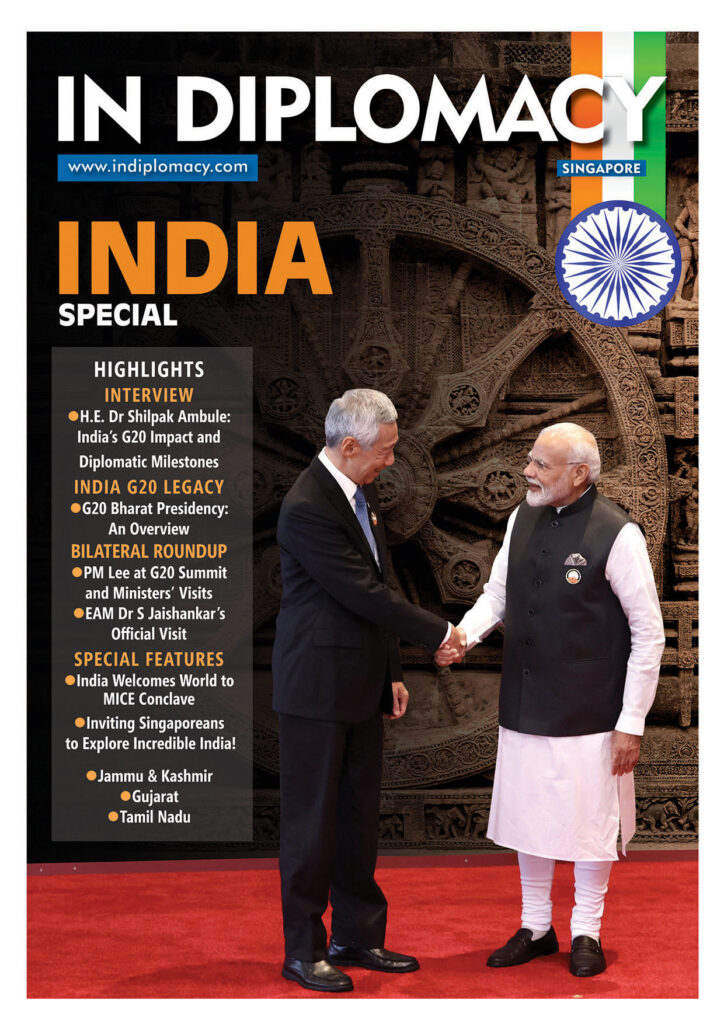
- ARTICLES ONLINE:
- H.E. Dr Shilpak Ambule: India’s G20 Impact and Diplomatic Milestones click here
- G20 Bharat Presidency: An Overview click here
- G20 Summit Highlights click here
- Bilateral Roundup: PM Lee at G20 Summit and Ministers’ Visits click here
- Bilateral Roundup: Dr Jaishankar’s Official Visit to Singapore: Opportunity to Deepen Strategic Partnership click here
- Millet Momentum A 2023 Success Story click here
- Tamil Nadu Global Investor’s Meet Attracts Singaporean Investors click here
- Vibrant Gujarat Global Summit 2024 click here
- India Welcomes World to MICE Conclave click here
- Kashmir Tourism Revival Changing Lives Daily click here
- Inviting Singaporeans to Explore Incredible India click here

